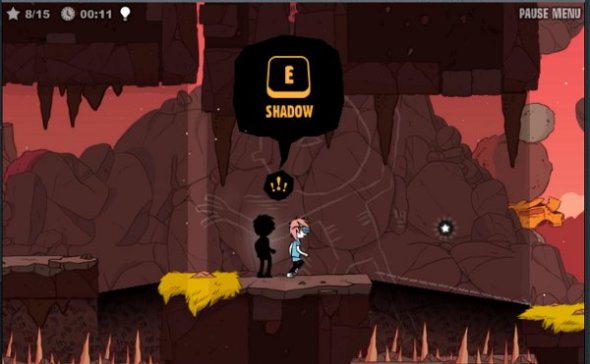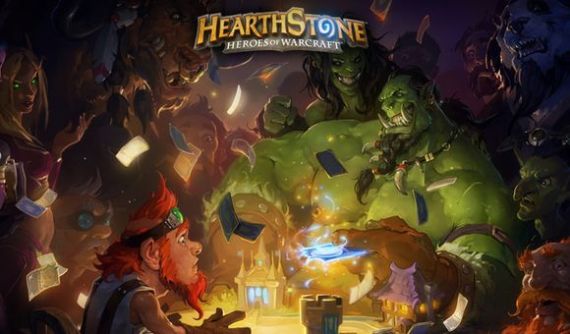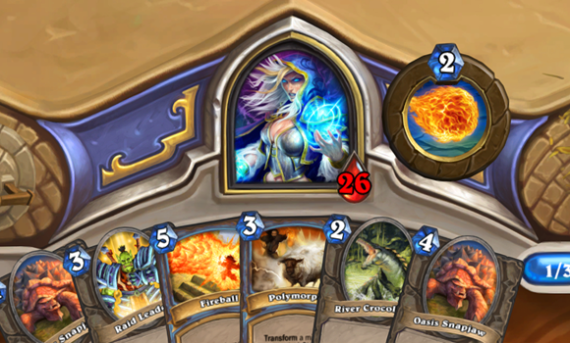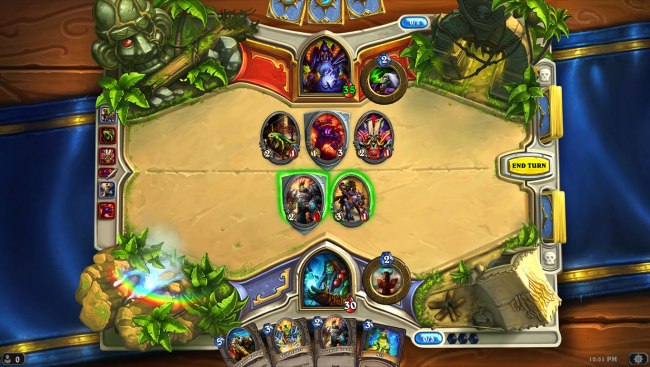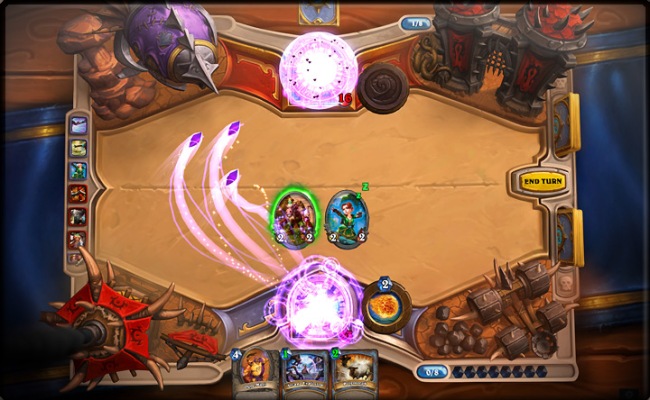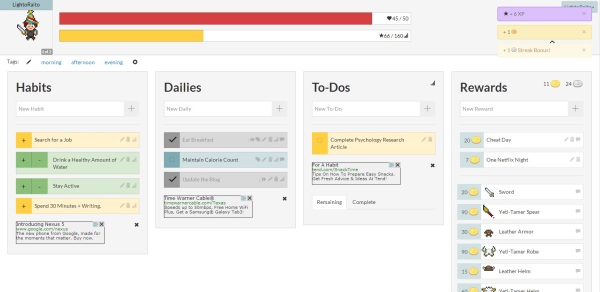You ever have a moment where you wonder if there’s more to yourself than you realize? Where you ponder deep questions, the kind that keep the average person up at night? The End is a game that’s all about that, and if nothing else, it’ll get you thinking.
One part platformer and one part personality quiz, The End calls itself “an intriguing game about morality that asks big questions.” The good news is it delivers what it promises. You play through three worlds of six levels each in fairly typical platforming style. At the end of each level, you duel one of three deities (I think. It’s never really explained) in a sort of card game, vying for a “death object.” Only by collecting all of the death objects can you win the game. The interesting part comes in at the end of each level, right before your card battle. In order to exit the level, you have to answer a yes-or-no question. This may not be the type of question you were expecting if you went in expecting something like your typical Jung types test. The questions are less like “Do you consider yourself an organized person?” and more like “Should a person ever hold the power of life and death over another person?” or “Do animals understand death?” Ones that require a little bit of premeditation before you answer. As you progress, your answers are plotted on a chart, and the game tells you which of several thinkers, writers, politicians and such your answers are closest to.
Now, I do like what the what the developers are shooting for with this game. It definitely did make me look inside myself and some questions had me sitting for quite a while, thinking about the answer. But here’s the rub. While the questions and personality quiz are nice, but the game itself falls flat. I’m all for having a message in your game or making an “artistic” type of game, but the thing developers have to remember is that you’re making a game first and foremost. No amount of fluff is going to save a bad game.
As I played the game, I found myself dreading each level, like it was a chore to get to the big question and card battle at the end. The platforming element as a whole feels very unpolished. You have the player’s avatar getting stuck on random bits of ground that should be flat, puzzles with very unintuitive solutions, a shadow-controlling mechanic that could have been very interesting but feels like it was just sort of tacked on so the platforming levels would have something original to them. It’s just a mess overall.
On top of that, the card battles are an interesting concept, but they come up a little short too. I think my only big beef is that the AI is only challenging during the latest levels. Other than that, it’s decent and solid. Clearly inspired by games like Othello, but different enough that it doesn’t feel like the same game, and the unlockable power-ups are a nice touch.
I don’t know what to make of the art style. The art used for the character, the levels, and the web page itself is crisp, well-done, and you can instantly tell it’s unique. Then you meet the three deity-like-things I mentioned above. Their character design clearly has love put into it, but I feel like the designers tried a little too hard to make them “out there.” The result is the kind of art you see on an indie metal band’s t-shirts, and I have a hard time swallowing it. Obviously, that’s the kind of thing that’s most subjective, but it simply doesn’t jibe with me.
This review was kind of hard for me to put together because I really do like the concept here. At the core, I can see that The End really has some heart put into it and has tons of potential, and I absolutely adore the morality test part of it. It’s just that the game as a whole, the gameplay in particular, is very, very unpolished. I can’t give it a thumbs-up as a game, but if what I said about deep thinking and examining yourself interests you, you should still give it a spin.
Final Summary:
Game: The End
Genre: Platformer
Cost: Free
Pros: Very deep “personality test” really makes you think
Cons: Game as a whole is unpolished; feels like just a vehicle for the test
Rating: 4.0/10
